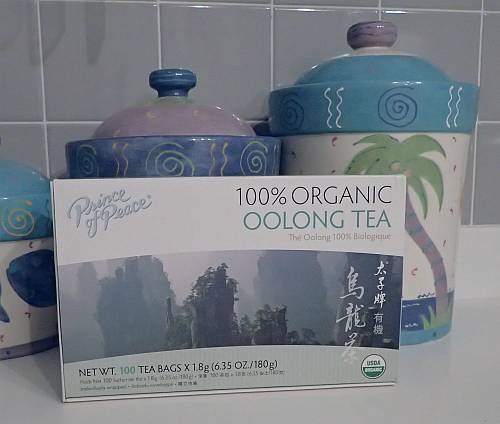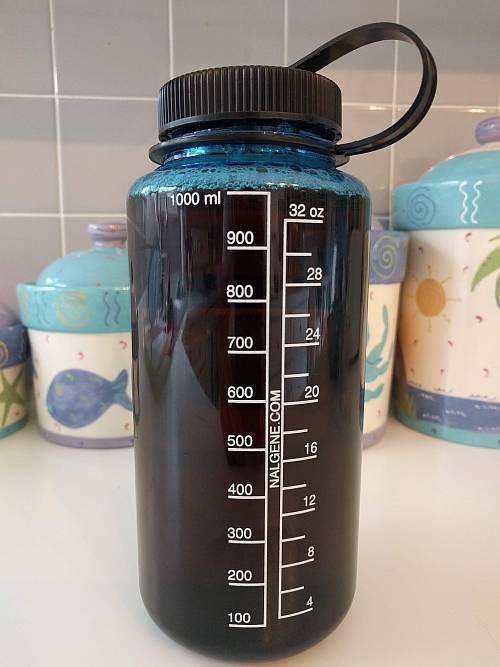Oolong tea for eczema!
Is oolong tea for eczema really a natural eczema treatment?
Oolong tea might considered one of those natural remedies for eczema. However, oolong tea for eczema isn’t that single magic pill.
But, oolong tea for eczema is a big part of a natural eczema treatment.
Natural Eczema Treatment
Research has shown that oolong tea can be very effective in the management of eczema. Here is a link to a PubMed.gov abstract of a January 2001 study of oolong tea and the management of recalcitrant atopic dermatitis. It’s a short read, so check it out.
The full text of this oolong tea for eczema study can be found here.
It’s also a short read and it provides more detail on oolong tea for eczema.
In part, over half of the 118 patients completing the study showed marked and sustained improvement after consuming oolong tea after one to two weeks. The oolong tea was consumed as part of a meal, three times a day.
In this study, the oolong tea came from a single 10-gram (.35 ounces) oolong tea bag steeped in 1000 ml (33 fluid ounces) of boiling water for 5 minutes.
The researchers, in their conclusion believed this was the result of the antiallergic properties of tea polyphenols.
Can You Cure Eczema
This was enough evidence for me to try oolong tea for eczema as part of my quest for a natural cure.
I drink a lot of unsweet tea throughout the day. It’s mostly the fresh brewed fast food tea offerings, so I don’t know its type or origin. So, maybe fast food establishments do have something not so bad for us after all?
But, it wasn’t much effort to add oolong tea into the daily tea routine.
Bottom line up front results: after a week to two weeks of a daily oolong tea rations, along with my other anti-eczema protocol, that eczema itching significantly subsided.
I was ecstatic that something so simple could be so effective in such a short time. Was this symptom improvement just the oolong tea, or was it some other aspect of my natural eczema treatment protocol?
Oolong Tea for Eczema Results
I was seeing improvements, and that is what I wanted.
Those redness patches didn’t go away immediately, that took another month or two. But, they did fade over that time as the eczema skin condition areas began to heal. Was the healing due to the oolong tea, I can’t be sure since I had incorporated other lifestyle changes at the same time.
The only problem was finding straight up oolong tea. No one seemed to consistently carry the straight stuff that I was looking for. Those discount housewares stores would occasionally carry oddball named tea varieties of unknown quality.
I finally found this oolong tea on Amazon, and it’s advertised as 100 percent organic. I am happy with this purchase as it works well in my anti-eczema protocol.

I’ll make up a batch for the next day while cleaning up after dinner and feeding the dogs.
Oolong Tea for Eczema Recipe
● microwave 2 cups tap water for 5 minutes, get that water good and hot
● steep 6 of the 1.8 gram (10.8 grams total) Prince of Peace oolong tea bags for 15 to 20 or 25 minutes while the water naturally cools
● remove teabags, squeeze out remaining water from those tea bags
● pour the cooled oolong tea into a 32 ounce Nalgene bottle and top off with cold water
● refrigerate overnight for use during the next day

Some studies suggest the longer you steep the tea, the more polyphenols and antioxidants that are extracted.
While I prefer a stronger brew, I’ll drink this all before noon. I find that consuming caffeine after noon affects my sleep quality.
It’s not very often I miss out on my oolong tea for eczema making routine. It’s easy enough. In my opinion, the concentration in my brew exceeds what was used in that cited study.
More Oolong Tea Research
Need some more late night reading and research information? Try these Google search keywords:
● oolong tea for gut bacteria, about 109,000 results returned
● oolong tea for autoimmune, about 77,500 results returned
● oolong tea for leaky gut, about 36,100 results returned
● oolong tea for eczema, about 124,000 results returned
Other studies suggest that oolong tea increases the diversity and altered the structure of gut microbiota. Most of these studies are behind a paywall. However, you can still read the extracts.
I’m not going into detail all the ways that oolong tea is different from other teas. They are all made from the same plant:- Camellia Sinenses. The main difference is in how the tea leaves are harvested and processed.
If you read though more of those search results, you’ll see that oolong tea, as well as other tea types, have many benefits well beyond gut health and eczema associated with daily consumption.
Oolong Tea For Eczema References:
A trial of oolong tea in the management of recalcitrant atopic dermatitis.
https://www.ncbi.nlm.nih.gov/pubmed/11176659
A Trial of Oolong Tea in the Management of Recalcitrant Atopic Dermatitis.
https://jamanetwork.com/journals/jamadermatology/fullarticle/478168
Anti-Inflammatory Effect of Oolong Tea Polyphenols.
https://www.researchgate.net/publication/274470050_Anti-Inflammatory_Effect_of_Oolong_Tea_Polyphenols
The modulatory effect of infusions of green tea, oolong tea, and black tea on gut microbiota in high-fat-induced obese mice.
https://www.ncbi.nlm.nih.gov/pubmed/27812583
What science says about getting the most out of your tea.
http://theconversation.com/what-science-says-about-getting-the-most-out-of-your-tea-75767
The modulatory effect of polyphenols from green tea, oolong tea and black tea on human intestinal microbiota in vitro.
https://link.springer.com/article/10.1007/s13197-017-2951-7
